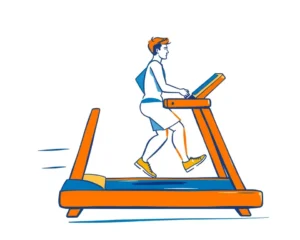Many people believe that peak physical condition is only achievable in one’s youth. However, one personal trainer is challenging this notion by sharing her journey to achieving peak fitness and health at the age of 34, surpassing her physical condition in her 20s. This article explores her secrets, offering insights and practical tips for anyone seeking to improve their health and fitness regardless of age.
The Transformation: From 20s to 30s
This section details the personal trainer’s experiences and the changes she implemented.
Early Challenges and Misconceptions
In her 20s, the trainer, like many others, relied on quick fixes and unsustainable habits.
- Inconsistent Workouts: Sporadic gym visits without a structured plan.
- Dietary Imbalances: Processed foods and restrictive dieting led to energy crashes.
- Lack of Knowledge: Limited understanding of nutrition and exercise science.
The Turning Point: Embracing a Holistic Approach
A shift in mindset and a commitment to a holistic approach marked the turning point.
- Education and Research: Delving into the science of nutrition, exercise physiology, and biomechanics.
- Personalized Training Plans: Creating workout routines tailored to individual needs and goals.
- Mindful Nutrition: Focusing on whole foods and balanced macronutrient intake.
Key Secrets to Achieving Peak Fitness
The personal trainer’s secrets revolve around sustainable lifestyle changes.
Consistent Exercise Routine
Consistency is more important than intensity.
- Regularity: Aim for at least 3-5 workouts per week.
- Variety: Incorporate different types of exercises to target all muscle groups.
- Progressive Overload: Gradually increasing the intensity or duration of workouts.
Balanced Nutrition
Fueling the body with the right nutrients is essential.
- Whole Foods: Prioritize fruits, vegetables, lean proteins, and whole grains.
- Hydration: Drink plenty of water throughout the day.
- Macronutrient Balance: Ensure a healthy ratio of carbohydrates, proteins, and fats.
Prioritizing Recovery
Rest and recovery are as important as exercise and nutrition.
- Sleep: Aim for 7-9 hours of quality sleep per night.
- Active Recovery: Incorporate light activities like walking or stretching on rest days.
- Stress Management: Practice relaxation techniques such as meditation or yoga.
Mental Wellness
A positive mindset plays a crucial role in achieving fitness goals.
- Mindfulness: Focus on the present moment and cultivate gratitude.
- Positive Self-Talk: Replace negative thoughts with positive affirmations.
- Goal Setting: Set realistic and achievable goals to stay motivated.
Exercise and Workouts
The personal trainer’s workout routine is a blend of strength training, cardio, and flexibility exercises.
Strength Training
Building muscle mass is crucial for overall health and metabolism.
- Compound Exercises: Focus on exercises that work multiple muscle groups, such as squats, deadlifts, and bench press.
- Isolation Exercises: Incorporate exercises that target specific muscles, such as bicep curls and calf raises.
- Proper Form: Prioritize proper form over lifting heavy weights to prevent injuries.
Cardiovascular Exercise
Improving cardiovascular health is essential for endurance and stamina.
- High-Intensity Interval Training (HIIT): Alternate between short bursts of intense exercise and periods of rest or low-intensity exercise.
- Steady-State Cardio: Engage in activities such as running, cycling, or swimming at a moderate intensity for a sustained period.
- Active Lifestyle: Incorporate physical activity into daily life, such as walking or taking the stairs.
Flexibility and Mobility
Maintaining flexibility and mobility is crucial for preventing injuries and improving range of motion.
- Stretching: Perform static stretches after workouts and dynamic stretches before workouts.
- Yoga: Practice yoga to improve flexibility, balance, and relaxation.
- Foam Rolling: Use a foam roller to release muscle tension and improve circulation.
Diet and Nutrition
The personal trainer emphasizes a balanced and sustainable approach to nutrition.
Macronutrient Breakdown
Understanding the role of macronutrients is crucial for optimizing performance and body composition.
- Protein: Consume adequate protein to support muscle growth and repair.
- Carbohydrates: Choose complex carbohydrates for sustained energy.
- Fats: Include healthy fats for hormone production and overall health.
Meal Planning and Preparation
Planning meals in advance can help ensure a healthy and balanced diet.
- Batch Cooking: Prepare large quantities of food in advance to save time.
- Healthy Snacks: Keep healthy snacks on hand to avoid unhealthy cravings.
- Portion Control: Pay attention to portion sizes to avoid overeating.
Supplements
Supplements can be used to complement a healthy diet, but they should not replace whole foods.
- Protein Powder: Use protein powder to supplement protein intake after workouts.
- Creatine: Creatine can improve strength and power.
- Omega-3 Fatty Acids: Omega-3 fatty acids are beneficial for heart health and brain function.
Lifestyle and Mindset
Adopting a healthy lifestyle and positive mindset is crucial for long-term success.
Stress Management Techniques
Managing stress is essential for overall health and well-being.
- Meditation: Practice meditation to calm the mind and reduce stress.
- Deep Breathing Exercises: Use deep breathing exercises to relax the body and mind.
- Spending Time in Nature: Spending time in nature can reduce stress and improve mood.
The Importance of Sleep
Getting enough sleep is crucial for physical and mental recovery.
- Establish a Sleep Routine: Go to bed and wake up at the same time each day.
- Create a Relaxing Bedtime Environment: Make sure the bedroom is dark, quiet, and cool.
- Avoid Caffeine and Alcohol Before Bed: Caffeine and alcohol can interfere with sleep.
Staying Motivated
Staying motivated is essential for long-term success.
- Set Realistic Goals: Set goals that are challenging but achievable.
- Track Progress: Track progress to see how far you’ve come.
- Reward Yourself: Reward yourself for achieving milestones.
Expert Opinions and Scientific Backing
The personal trainer’s approach is supported by scientific research and expert opinions.
Studies on Exercise and Aging
Research shows that regular exercise can improve health and longevity.







